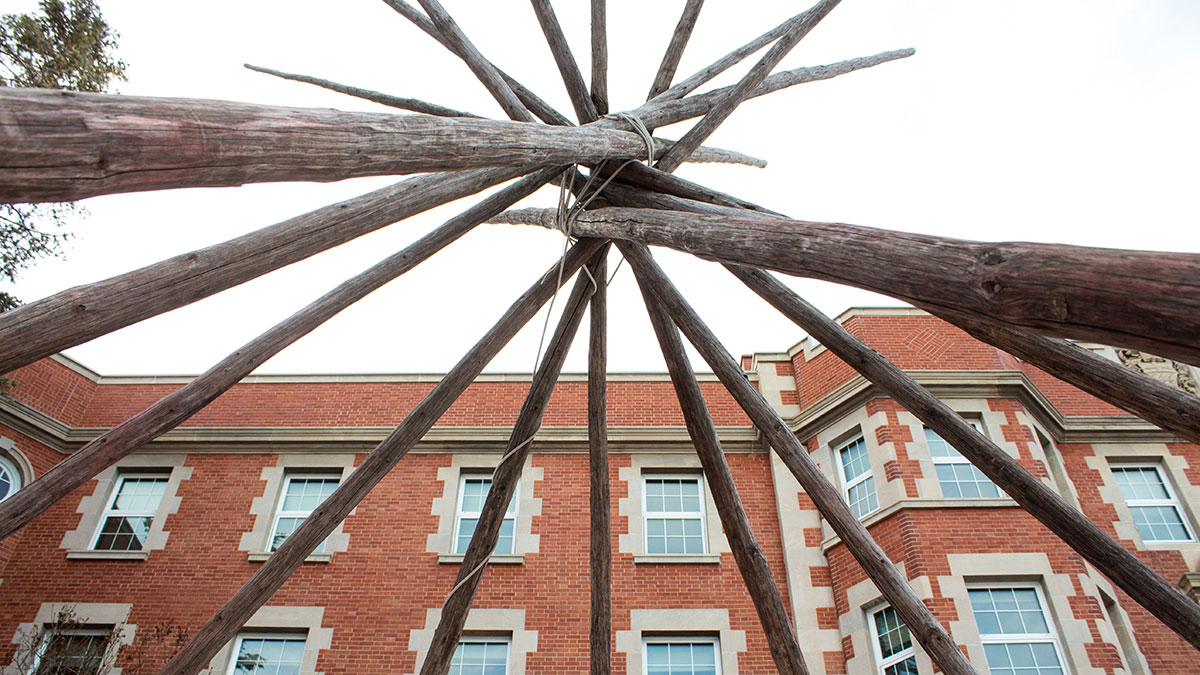SU developing response to TRC calls to action
 Christina Varvis
Christina VarvisAboriginal students are underrepresented in the university’s population, and the Students’ Union will soon have an official policy to address that.
The political policy will incorporate the four post-secondary related calls to action in the Truth and Reconciliation Commission (TRC) of Canada’s report, released last June.
“(The policy) falls into a good spot because it is us fulfilling the role of responding to these calls to action as a public institution as the University of Alberta community,” Hanwell said.
The TRC listed 94 calls to action to address the impact of residential schools in Canada. The calls mention the need for funding aboriginal students and research into reconciliation. Because of their relevance to the undergraduate experience, the calls were incorporated into the SU’s proposed policy, SU Vice-President Dylan Hanwell said.
The policy’s first readings were recently passed in Students’ Council on March 22 and will now be researched by a task force to determine any changes that will make the policy more relevant to the U of A.
The proposed TRC response outlines the importance of aboriginal language programs, which are currently only offered at the U of A in Cree. Further research will be conducted to determine whether different languages should be offered as well, Hanwell said.
Suggestions for certain programs to include a mandatory Native Studies course are also included in the SU’s policy, but the SU will consult more before it decides to take an advocacy stance. Some U of A faculty associations are in favour of making a Native Studies course mandatory, while others are opposed, Hanwell said.
The policy also addresses the high number of aboriginal students waiting for post-secondary funding. Currently, there is a two per cent growth cap on the federal post-secondary funding program — the growth cap barely keeps up with inflation, Hanwell said. In 2008, the federal program supported an estimated 22,000 aboriginal students, but lack of funding left more than 10,000 students without support. There are no details as to how many Aboriginal students are unable to attend the U of A due to a lack of funding, Hanwell said.
There are no recent statistics on the backlog of Canadian aboriginal students waiting on federal funding, but numbers are likely similar due to inflation, Hanwell said. The SU’s policy would advocate removing the two per cent growth cap which would allow more post-secondary funding for students rather than just keeping up with inflation.
“We know the need is there, and I think it would be great to enshrine (aboriginal student funding) in policy so that it doesn’t get forgotten,” Hanwell said.
“(This way) it’s constantly on the minds of Council and the executive, that it’s important we push for financial aid to reduce that gap where we have aboriginal students underrepresented.”
TRC First Principles
1. The Truth and Reconciliation Commission came forward with “Calls to Action” that are relevant to all Canadians.
2. As the Students’ Union, we have a mandate to improve the undergraduate experience at the U of A.
3. The U of A Students’ Union should adopt Calls to Action from the Truth and Reconciliation Commission’s Final Repot that directly relate to the undergraduate experience at the University of Alberta.
4. The education and employment gap between Aboriginal and non-Aboriginal students should be eliminated.
5. The backlog of Aboriginal students seeking post-secondary education must be dealt with.
6. Aboriginal language programs are an (sic) important for the University of Alberta to offer.
7. Students in the following areas of study should have mandatory aspect (sic) of their degree that deals with Aboriginal Peoples in reference to their studies:
- Medicine
- Nursing
- Law
- Theology
8. There should be funding available to those that wish to integrate indigenous knowledge into the classroom.
9. Undergraduate students will benefit from the increased ability to do research on understanding reconciliation.
10. University of Alberta Museums and Libraries should work collaboratively with the National Centre for Truth and Reconciliation.





This is an April Fool’s joke right?
We facilitate Aboriginal Awareness Training and incorporate TRC “Calls to Action” and why the need for reconciliation.
Equally important is for our students to understand why the TRC was initiated and how to reconcile.
The interest has been amazing and Canadians are hungry for this information. Canada has a good chance now to restore the “Honour of the Crown” which has be lost and absent for far to long.
Mandatory learning about Canada’s Indigenous peoples in classrooms must begin as soon as possible.